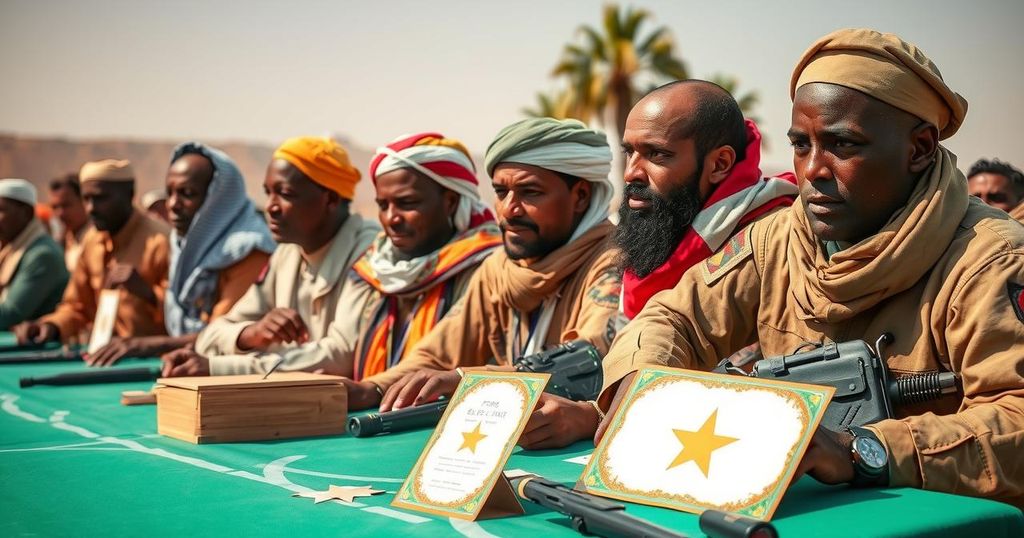Chad’s Military and Nomads Cast Ballots in Controversial Elections
Chad’s military and nomadic communities voted in general elections seen by President Mahamat Deby as a step towards democracy. The broader population will vote on Sunday amidst opposition boycotts. Initial estimates show a significant turnout, but the elections face criticism over their legitimacy and ongoing regional security issues.
On Saturday, military personnel and nomadic communities in Chad participated in the nation’s general elections, which are intended by President Mahamat Idriss Deby Itno as a pivotal step towards democracy. The elections involve selecting representatives for the national parliament, regional assemblies, and local councils, although they are marred by a boycott from opposition parties. The broader electorate will vote on Sunday, while the military and nomads voted a day earlier due to logistical considerations.
Despite opposition claims branding the elections as fraudulent, initial estimates indicate that around 45 percent of the 200,000 nomads and 45,000 soldiers had cast their votes by midday. Observations at the polling stations suggested that the military were voting freely, according to election management officials. Representatives from nomadic tribes expressed hopes that elected officials would address climate-induced challenges affecting their livelihoods, such as livestock losses and conflicts over resources with sedentary farmers.
The electoral process is taking place amid significant security issues, including ongoing attacks from the militant group Boko Haram and tensions related to Chad’s military involvement in regional conflicts. President Mahamat Deby Itno, who assumed power in 2021 following his father’s death, continues to face accusations from opposition factions regarding the legitimacy of his leadership, especially following a controversial presidential election last May. The last legislative elections occurred in 2011, with subsequent elections postponed due to various crises.
Chad, a nation in the Sahel region, has faced political instability and security challenges for many years, including jihadist violence and struggles related to governance. The recent push for democratic elections is set against a backdrop of protests from opposition parties, who view the electoral process as lacking transparency and legitimacy. The military’s role in submitting to elections underlines the complexities of governance in Chad, especially with recent shifts in power following the long-standing rule of Idriss Deby Itno. President Mahamat Deby Itno has framed these elections as a crucial part of a democratic transition after decades of authoritarian leadership.
In summary, the recent voting by Chad’s military and nomadic communities underscores the country’s tumultuous political landscape, with the government positioning the elections as critical for democratic progress. However, opposition parties contest the legitimacy of the elections, labeling them a sham amid ongoing security threats and socio-economic challenges affecting the population. This electoral process is vital not only for establishing new leadership but also for addressing the pressing needs of communities impacted by climate change and conflict.
Original Source: www.barrons.com




Post Comment